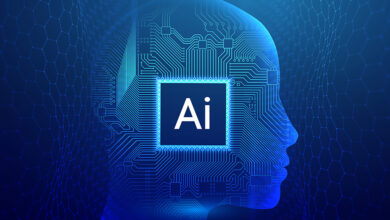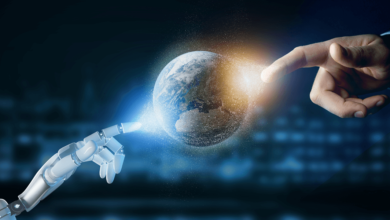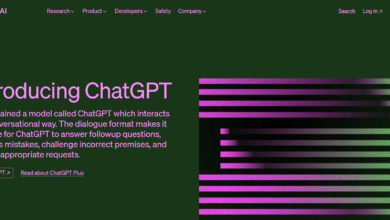Side Effects of AI on Human Life
Unraveling the Impact: Unveiling the Subtle Side Effects of AI on Human Life
Unraveling the Impact: Unveiling the Subtle Side Effects of AI on Human Life

Artificial Intelligence (AI) has revolutionized various aspects of our lives, from technology and healthcare to transportation and entertainment. AI systems are designed to replicate human intelligence and perform tasks with incredible efficiency and accuracy. However, like any powerful tool, AI also comes with its own set of side effects that impact human life in profound ways. In this article, we will explore some of the significant side effects of AI on human life, delving into both the positive and negative aspects.
1. Job Displacement and Economic Impact
One of the primary concerns associated with AI is its potential to replace human jobs. As AI algorithms become more sophisticated, they can perform tasks traditionally carried out by humans, leading to automation and job displacement. While this automation can increase productivity and streamline operations, it also creates challenges for individuals who may find themselves unemployed or needing to acquire new skills. This shift in the employment landscape poses economic implications as well, as societies grapple with the need to retrain and support workers in a rapidly changing job market.
2. Privacy and Data Security
AI systems heavily rely on vast amounts of data to learn and make informed decisions. This dependence on data raises concerns regarding privacy and data security. With AI analyzing and processing personal information, there is an increased risk of data breaches and unauthorized access to sensitive data. Protecting individual privacy and ensuring robust data security measures becomes crucial as AI continues to advance.
3. Bias and Discrimination
AI algorithms are created by humans, and they can inadvertently inherit biases present in the data used to train them. This can result in biased decision-making processes that perpetuate discrimination and inequality. For example, AI-powered hiring systems may inadvertently favor certain demographics, leading to biased hiring practices. Addressing these biases and ensuring fairness in AI algorithms is a critical challenge that needs to be addressed to prevent further social disparities.
4. Ethical Considerations
AI raises numerous ethical dilemmas that require careful consideration. As AI becomes more autonomous and capable of making decisions, questions arise regarding accountability and responsibility. Who should be held responsible if an AI system makes a harmful or unethical decision? Additionally, the development and deployment of AI in sensitive areas such as healthcare and criminal justice require careful ethical frameworks to ensure the well-being and fairness of individuals affected by AI systems.
5. Social Isolation and Emotional Disconnect
While AI has brought about connectivity through various digital platforms, there is also a concern that excessive reliance on AI and automation can lead to social isolation and an emotional disconnect. Human interactions and relationships are fundamental to our well-being, and an overreliance on AI-driven interactions may hinder genuine human connections, impacting mental health and social cohesion.
6. Impact on Human Creativity and Skills
AI’s ability to automate tasks and provide quick solutions can inadvertently impact human creativity and skill development. As AI takes over routine and repetitive tasks, there is a risk of individuals becoming overly reliant on AI systems, leading to a decline in critical thinking, problem-solving abilities, and creativity. Striking a balance between leveraging AI’s capabilities while nurturing human skills becomes crucial to ensure the holistic development of individuals.
7. Unemployment and Economic Disparity
As AI disrupts industries and displaces jobs, there is a concern that it may contribute to higher unemployment rates and economic disparities. If certain sectors heavily rely on AI-driven automation, individuals working in those sectors may face difficulties finding alternative employment opportunities. This can lead to socioeconomic inequalities and a widening gap between those who can adapt to the AI-driven economy and those who cannot.
8. Dependence and Reliability
While AI systems offer remarkable capabilities, they are not immune to errors or malfunctions. Relying heavily on AI can create a sense of dependence
, where individuals and organizations become reliant on AI systems for decision-making without fully understanding their underlying processes. It is essential to maintain a balance between leveraging AI’s potential and ensuring critical human oversight to mitigate risks associated with dependence and reliability.
9. Health and Well-being
AI’s impact on human health and well-being is an area of both promise and concern. AI-driven advancements in healthcare hold immense potential for improving diagnostics, treatment, and patient outcomes. However, ethical considerations, data privacy concerns, and potential biases in AI algorithms must be carefully addressed to ensure equitable access and avoid adverse consequences on individual health and well-being.
10. Environmental Impact
The development and deployment of AI systems require substantial computing power, which can contribute to increased energy consumption and carbon emissions. The environmental impact of AI needs to be carefully managed to ensure sustainable growth and minimize the carbon footprint associated with AI technologies.
Conclusion
Artificial Intelligence offers tremendous possibilities and transformative potential for human life. However, it is crucial to acknowledge and address the side effects and challenges it presents. By proactively addressing issues such as job displacement, bias, privacy concerns, ethical considerations, and the impact on human creativity, we can maximize the benefits of AI while minimizing the potential negative consequences. Striking a delicate balance between human oversight and AI’s capabilities will pave the way for a future where AI enriches human life without compromising our values, well-being, and societal progress.



